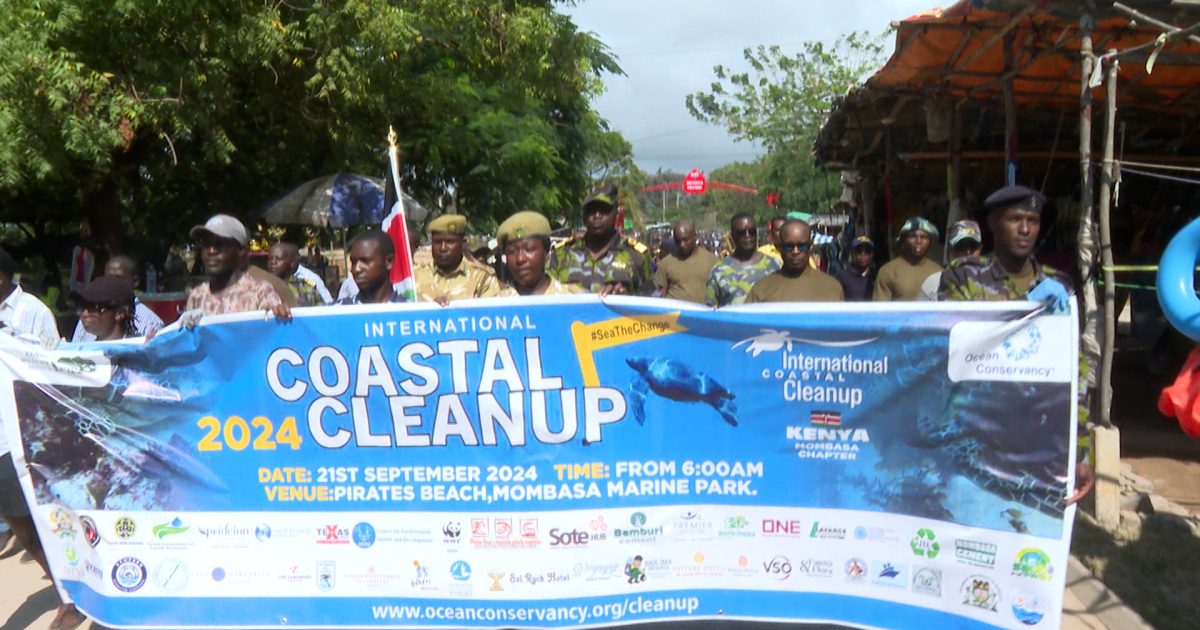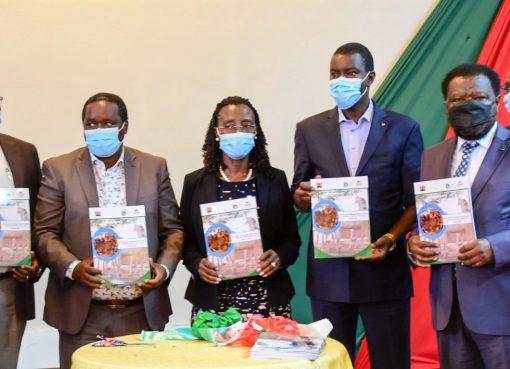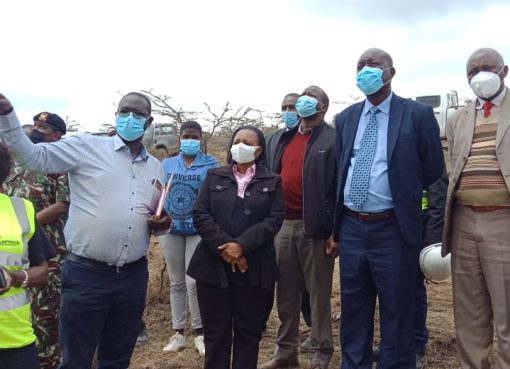The Kenya Navy has affirmed its commitment to partner with communities, organisations, and government agencies to preserve oceans against plastic debris pollution as the world marks International Coastal Cleanup (ICC).
According to the United Nations Environment Programme (UNEP), every year approximately 19–23 million tonnes of plastic waste enter the oceans, endangering marine life and ecosystems.
Speaking during the ICC event at the Jomo Kenyatta Beach in Mombasa, Kenya Navy Deputy Commander Brigadier John Kiswa said the clean-up is vital for the local environment and the planet’s health.
Participants drawn from the local communities, schools, NGOs, and government agencies braved the mid-morning scorching sun to collect waste along the beach shoreline.
“The sheer volume of waste we collected is a powerful reminder of our challenges. Each piece of trash removed from our shores signifies not only a cleaner coastline but also our collective commitment to safeguarding this beautiful environment for future generations,” stated Brig. Kiswa.
The coastlines, he explained, are not just stunning landscapes but are vital ecosystems that support a rich diversity of marine life.
“They also play a critical role in the livelihoods of many within our community, providing sustenance, tourism, and economic opportunities. However, these precious resources are increasingly threatened by pollution, climate change, and human activity,” elucidated Brig. Kiswa.
He further called for concerted efforts in the preservation of the environment from human and industrial activities.
“Every piece of trash we pick up is a step toward a cleaner ocean and a healthier planet. I commend each of you for your commitment and enthusiasm; your efforts today are crucial not just for now but for generations to come,” he stated.
The Deputy Commander encouraged the participants to advocate for sustainable practices, push for better waste management solutions, and engage the communities in ongoing conversations about environmental stewardship.
“Awareness is the first step toward action, and each of us has the power to inspire change,” he said.
The World Wildlife Fund (WWF) organisation is engaging businesses to design their products better by having reused models for beverages and drinks to combat single-use plastics that affect the marine ecosystem.
“We need businesses to design their products better so that they embrace more reuse models and design their products that are recyclable and reusable to minimise it (plastics),” said WWF Circular Economy Lead Alex Kubasu.
WWF is working with cities to smarten their processes in the collection, logistics, and mobilisation of stakeholders.
The organisation is mobilising for a legally binding treaty to end plastic pollution by developing common ways. They are also advocating for extended producer responsibility.
“Classic case is the beach that we are just from. The plastic that has shown up on our beaches doesn’t emanate from Mombasa; it comes from the neighbouring countries. We must have common rules across the world to manage plastics,” stated Kubasu.
Kenya Coast Guard Director of Enforcement John Wanyoike said the ocean has all the resources that mankind requires for social development, thus the need to eliminate plastics from water bodies.
By Sadik Hassan




